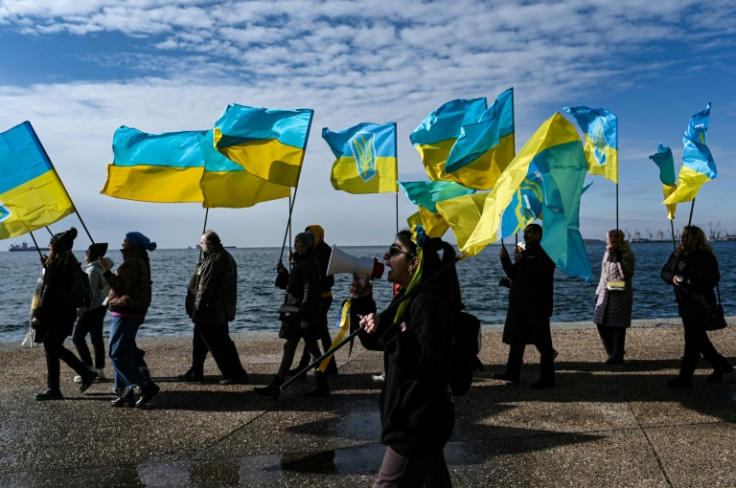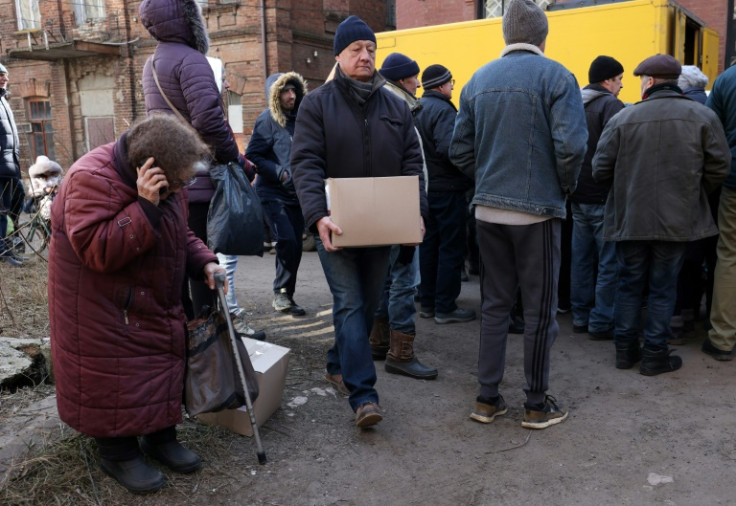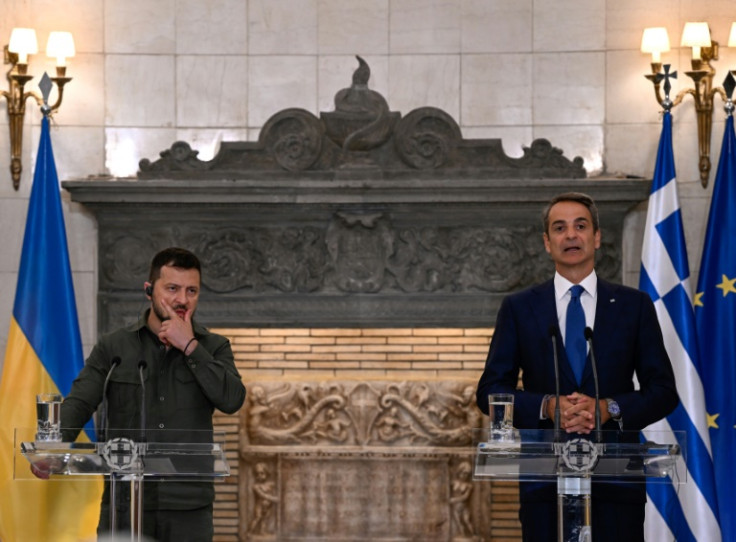EU Poised To Seize Russian Profits, Greek Envoy Says
The European Union is expected to move toward seizing Russian profits generated in the bloc, a key step to backing Ukraine that stops short of calls to confiscate assets outright.

The European Union is expected to move toward seizing Russian profits generated in the bloc, a key step to backing Ukraine that stops short of calls to confiscate assets outright, a Greek envoy told AFP on Monday.
Britain and the United States have led calls for the takeover of billions of dollars in frozen Russian banking and other assets, meeting reluctance from European partners who fear that such a step will send other countries racing to pull money out of the West.
Spiros Lampridis, Greece's special national envoy for Ukraine, said the Europeans were coming to consensus on a more "subtle" approach of seizing profits from Russian investments and assets, either public or private, to set up a fund for Ukraine.

The Europeans will tell Russia "I'm not going to allow you to make profits on the capital you have accumulated on my soil, so the profits of that can be confiscated," Lampridis told AFP on a visit to Washington.
"We're about to do it. I think it's a question of months," he said, adding that the European Commission was working out legal and practical implementation.
Compared with an estimated 500 billion euros ($540 billion) -- or likely much more -- needed for Ukraine's reconstruction, he estimated that the move would generate 50 to 60 billion euros.
"It's a trifle, but still, really, it's at least a move to show them -- look what you have done," he said of Russia.
"You cannot replace the lives that you have destroyed," he said, "but at least you can contribute in rebuilding what you destroyed."
Lampridis said that the more "brutal" approach of seizing Russian assets was "totally illegal" under international law.
"Practically, well, there are lots of assets of Western companies or countries in Russia itself, so you can imagine what the next step will be," he said.

On seizing profits, "of course, the Russians will react to that as well," he said.
"But even if they take us to the international courts, I think we're going to win."
The Group of Seven industrialized democracies, in a weekend statement marking two years since the invasion, called for "all possible avenues" to use Russian assets to support Ukraine "consistent with our respective legal systems and international law."
British Prime Minister Rishi Sunak, in an opinion piece in the Sunday Times, called for the West to "be bolder" and start by taking interest from Russian assets before finding "lawful ways to seize the assets themselves."
The United States unveiled hundreds of new sanctions last week to mark the anniversary invasion and the death in custody of Russian opposition leader Alexei Navalny but did not touch assets, with Deputy Treasury Secretary Wally Adeyemo saying Washington wanted Western powers together to "move as a coalition."
Greece, which has historic ties both with Russia and Ukraine, has been outspoken in opposing the invasion and has worked closely with the United States to bring arms to Kyiv.
Lampridis said Greece, which recently held a reconstruction conference for businesses, was committed to working to repair Ukraine's economy including by helping Kyiv transport its national gas and transition to solar and other renewable energy.
He said that Greece has a "very big comparative advantage" as it has partnered with other countries including Romania, Bulgaria and Balkan states as they modernized their economies to integrate with the European Union.
He acknowledged that businesses had longstanding concerns about corruption in Ukraine but praised efforts by Kyiv's technocrats and said that the Europeans would be monitoring funding "very, very meticulously."
"So that danger is not disappearing, but it is going to be much less," Lampridis said.
© Copyright AFP 2025. All rights reserved.





















